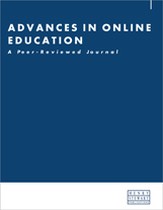The principle of least disruptive online course design: Balancing innovation, pedagogy and student learning
Abstract
Amid the highly competitive world of higher education, colleges and universities continue to search for bright shiny objects that can be leveraged to set themselves apart from the pack and attract and enroll new students. Most recently, this quest has focused on the use of digital technology. That can be interpreted as both good news and bad news. The good news is realised when colleges and universities discover new ways to enhance retention and graduation rates. It becomes bad news, however, when the glitz and glamour of a new digital tool are perceived as more critical than impacts on student learning. The Principle of Least Disruptive Online Course Design provides a template for faculty and course designers as they plan to use new technology in online courses. The inclusion of new and different technologies in course design, although well-intentioned, can adversely affect student learning if not accompanied by opportunities and resources that: 1) validate the appropriateness of digital tools and their purpose; 2) promote faculty-use competency; 3) promote student-use competency; 4) provide guided application; and 5) allot ample time and resources for learning and engagement.
The full article is available to subscribers to this journal (subscription is free).
Author's Biography
Brad Garner serves as the Digital Learning Scholar in Residence at Indiana Wesleyan University and teaches courses in the graduate psychology programme. Prior to moving into higher education, his career was focused on programme and faculty development in K-12 public school settings where he worked as a classroom teacher, school psychologist and administrator. Brad is a frequent presenter at conferences and workshops around the world and has authored several books including Engaged Learners and Digital Citizens (2016) and Teaching Students to Become Digital Content Curators (2019). He is passionate about students and faculty becoming wide and proficient users of digital technology. Brad also serves as the founding editor of The Toolbox, an e-newsletter for the National Resource Center for the First-Year Experience and Students in Transition at the University of South Carolina. He also co-hosts the Digital2Learn podcast. His most recent adventure includes the creation of a digital coursework for men and women in prison.
Tiffany Snyder is the Director of Faculty Enrichment on the National and Global Campus of Indiana Wesleyan University. Tiffany and her colleagues design and deliver comprehensive faculty training and professional development to adjunct and full-time faculty in on-site, online, synchronous and asynchronous formats. She has been instrumental in advocating for online learning experiences that are engaging and interactive. Her research currently focuses on documenting the impact of these innovations on student learning, retention and persistence. Tiffany also co-hosts the Digital2Learn podcast and teaches undergraduate psychology courses. In 2021, she earned a doctorate of philosophy in psychology with an emphasis on the integration of psychology, technology and learning.
Citation
Garner, Brad and Snyder, Tiffany (2022, September 1). The principle of least disruptive online course design: Balancing innovation, pedagogy and student learning. In the Advances in Online Education: A Peer-Reviewed Journal, Volume 1, Issue 1. https://doi.org/10.69554/PBOE1777.Publications LLP
